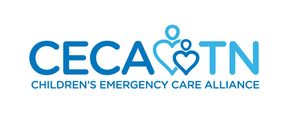Children's Emergency Care Alliance of Tennessee
Board Chair
| Board Chair | Jennifer Dindo |
|---|---|
| Company Affiliation | Monroe Carrell Jr Children's Hospital at Vanderbilt |
| Term | July 2023 to June 2025 |
Board of Directors
Board Members| Name | Affiliation | Status |
|---|---|---|
| Oseana Bratton RN | East Tennessee Children's Hospital | Voting |
| Kevin Brinkmann MD | Voting | |
| Jennifer Dindo RN | Monroe Carell Jr. Children's Hospital at Vanderbilt | Voting |
| Jennifer Durham RN | Children's Hospital at Erlanger | Voting |
| Tammie Henry RN | Baptist Medical Center | Voting |
| Lonnie King MD | Children's Hospital at Erlanger | Voting |
| Kevin Nooner MSN, RN, NE-BC, CMTE | Vanderbilt University Medical Center LifeFlight | Voting |
| Wesley Rainbolt MD | Le Bonheur Children's Hospital | Voting |
| Regan Williams MD | Le Bonheur Children's Hospital | Voting |
| John Wright | Le Bonheur Children's Hospital | Voting |
Error Loading Module. Please contact support if this persists.
Governance
| Board Term Lengths | 2.00 years |
|---|---|
| Board Term Limits | 2 |
| Board Meeting Attendance % | 80% |
| Does the organization have written Board Selection Criteria? | No |
| Does the organization have a written Conflict of Interest Policy? | Yes |
| Percentage Making Monetary Contributions | 100% |
| Percentage of Board Members making In-Kind Contributions | 50% |
| Does the Board include Client Representation? | Yes |
| Number of Full Board Meetings Annually | 4 |
Standing Committees
| Board Development / Board Orientation |
| Communications / Promotion / Publicity / Public Relations |
| Development / Fund Development / Fund Raising / Grant Writing / Major Gifts |
| Education |
| Executive |
CEO/Executive Director/Board Comments
| CECATN is respected as a national leader in developing a program that meets the needs of critically ill and injured children. We continue to build upon this exciting momentum and recognition. In April 2018, our nonprofit name changed from TN Emergency Medical Services for Children Foundation to Children's Emergency Care Alliance of Tennessee. High fidelity pediatric simulators continue to be used to teach evidence based pediatric emergency care to healthcare providers. Prior to our efforts, hospitals and ambulances were not required to have the most basic equipment for children. When a child was injured, the hospital or ambulance may not have an oxygen mask that fit a child's face and the IV needles were too big. Through legislation this was remedied. However, the percentage of 911 calls for children is about 10% with only a few percent being critically ill or injured. EMS and emergency room health care providers have even less opportunity to be proficient in difficult skills that are not used often. Therefore, the purchase of better equipment and the delivery of education to EMS crews, nurses, and physicians in the care of children is an ongoing need due to the lower incidence of critically ill and injured children than adults and the amount of staff turnover that occur. |

